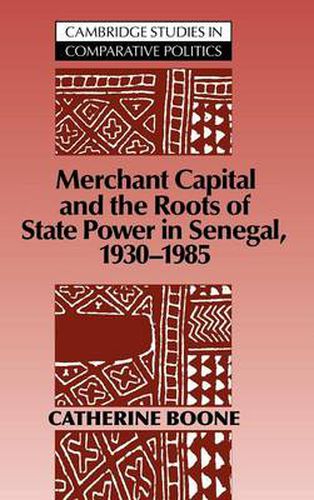Readings Newsletter
Become a Readings Member to make your shopping experience even easier.
Sign in or sign up for free!
You’re not far away from qualifying for FREE standard shipping within Australia
You’ve qualified for FREE standard shipping within Australia
The cart is loading…






In most post-colonial regimes in sub-Saharan Africa, state power has been used to structure economic production in ways that have tended to produce economic stagnation rather than growth. Catherine Boone examines the ways in which the exercise of state power has inhibited economic growth, focusing on the case of Senegal. She traces changes in the political economy of Senegal from the heyday of colonial merchant capital in the 1930s to the decay of the 1980s and reveals that old trading monopolies and commercial hierarchies were preserved at the cost of reforms that would have stimulated economic growth. Boone uses this case to develop an argument against analyses of political-economic development that identify state institutions and ideologies as independent forces driving the process of economic transformation. State power, she argues, is rooted in the material and social bases of ruling alliances.
$9.00 standard shipping within Australia
FREE standard shipping within Australia for orders over $100.00
Express & International shipping calculated at checkout
In most post-colonial regimes in sub-Saharan Africa, state power has been used to structure economic production in ways that have tended to produce economic stagnation rather than growth. Catherine Boone examines the ways in which the exercise of state power has inhibited economic growth, focusing on the case of Senegal. She traces changes in the political economy of Senegal from the heyday of colonial merchant capital in the 1930s to the decay of the 1980s and reveals that old trading monopolies and commercial hierarchies were preserved at the cost of reforms that would have stimulated economic growth. Boone uses this case to develop an argument against analyses of political-economic development that identify state institutions and ideologies as independent forces driving the process of economic transformation. State power, she argues, is rooted in the material and social bases of ruling alliances.